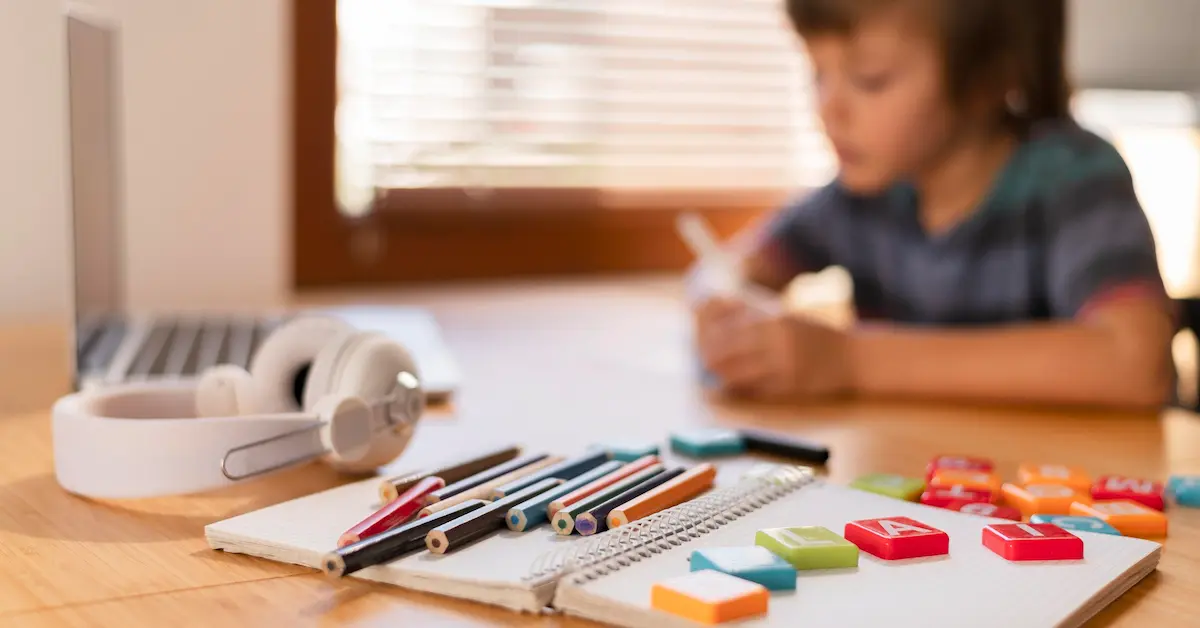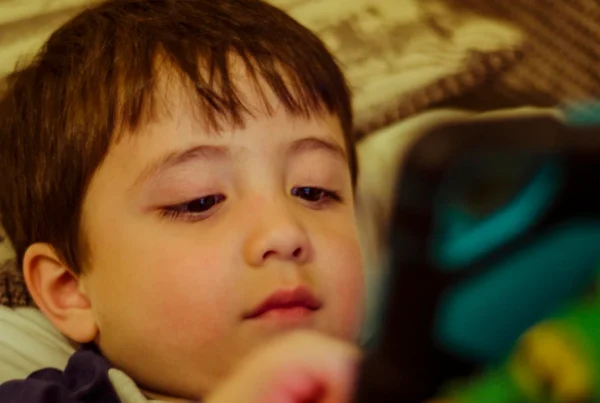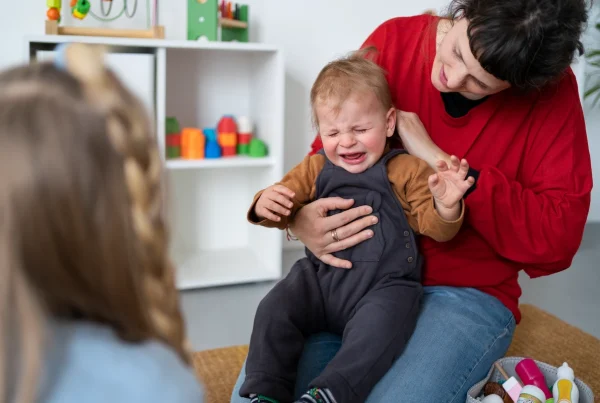Watching your child step into primary school is a bittersweet moment filled with pride, anticipation, and perhaps a touch of worry.
It marks the end of early childhood years and the beginning of formal education, where children begin to form deeper friendships, develop new skills, and discover more about themselves and the world around them.
Read also: How to Help Your Child Transition to Primary School after Kindergarten
We believe that this transition is not simply academic; it is spiritual, emotional, and social. Preparing well for primary school builds a strong foundation, much like the parable in Matthew 7:24–25, where the wise man built his house upon the rock.
Parents play a vital role in ensuring their child enters this new season with confidence, resilience, and a strong sense of faith.
Why Primary School Preparation Matters
Taking a little time to prepare now can make a big difference later. The key areas below explain why early preparation matters and how it helps children adapt, connect with others, and enjoy learning from day one.
1. Adjusting to New Routines and School Days
One of the first challenges children face when starting school is adapting to longer school days and a more structured schedule.
Practicing morning routines, walking to school, and familiarizing your child with the classroom and school grounds can make the transition smoother.
These small steps help your child feel secure, manage their tasks independently, and develop a sense of responsibility that encourages confidence in school life.
2. Developing Social Skills and Friendships
Starting primary school involves interacting with other children and building new relationships. Encouraging your child to play with peers, share, and take turns supports the development of social and emotional skills.
Practicing simple scenarios, such as asking for help from teachers or introducing themselves to friends, allows children to explore school relationships confidently and reduces anxiety on their first day.
3. Supporting Academic Readiness with New Skills
Primary school preparation also includes helping your child develop early academic skills in a fun and engaging way.
Activities like counting during everyday tasks, practicing writing, or reading short stories strengthen concentration skills and vocabulary while keeping learning enjoyable.
Encouraging playful learning at home ensures children are ready for school, can quickly learn new concepts, and approach lessons with curiosity and enthusiasm.
 Essential Checklist for Primary School Preparation: What to Prepare and Why
Essential Checklist for Primary School Preparation: What to Prepare and Why
Preparing your child for primary school doesn’t have to feel overwhelming. Below are practical, faith-filled strategies you can begin using today to help your little one step confidently into this new chapter.
1. Establish Consistent Routines
When a child starts school, it is a big change for the whole family, and many parents have concerns about how their child will adjust.
Setting clear and predictable routines is one of the easiest and most effective ways to help. Children feel less anxious when they know what will happen next, whether it is bedtime, mealtime, or study time.
A structured rhythm at home helps children adjust more easily to the schedules they will face in primary school and supports their confidence in school life. For example, creating a regular bedtime ensures your child is well-rested and ready for school.
Practicing a morning routine, such as waking up, getting dressed, having breakfast, and packing their PE kit or uniforms, mirrors what most schools expect on the first day.
As Proverbs 22:6 reminds us, “train up a child in the way he should go,” and daily routines provide a good way to teach responsibility and self-discipline.
2. Foster a Love for Reading
Reading is one of the most valuable habits to cultivate before starting school. Shared reading moments not only improve literacy but also develop imagination, listening skills, and emotional connections.
Set aside a daily reading time to get your child excited about stories and to talk together about what they hear. This makes learning fun and keeps your child ready for new lessons when starting primary school.
Choose a mix of stories; some that nurture creativity and others that introduce Biblical values. Picture books about kindness, courage, and perseverance spark meaningful conversations.
At Sekolah Pelita Harapan (SPH), parents are encouraged to weave scripture into reading time so children learn that the Bible is a source of wisdom and comfort.
Stories of young leaders like David or Samuel show children that God equips them even at a young age.
School events like Book Week make reading even more exciting, with interactive activities, parades, and character dress-ups.
Read also: 8 Types of Learning Styles: Knowing Your Child Better
3. Encourage Independence Through Self-Help Skills
Primary school requires children to manage more tasks on their own. From packing their bag to handling lunchtime independently, self-help skills are key to building a child’s confidence.
Parents can get their child ready by putting time into simple practice: tying shoes, using the toilet without help, organizing belongings, or tidying up after play.
These small acts empower children to take ownership of their routines and feel ready for school.
Independence allows children to quickly learn new skills in the classroom and supports a smooth transition. Galatians 6:5 reminds us, “for each will have to bear his own load,” highlighting the importance of equipping children to manage everyday tasks with confidence.
4. Develop Social and Emotional Readiness
Primary school is a social environment where children interact with peers, collaborate, and form friendships.
Helping children express feelings in words, practice turn-taking during play, and navigate disagreements will help children develop essential social skills.
Role-playing scenarios, such as asking teachers for help or introducing themselves to other children, can also reduce first-day anxiety.
Teaching empathy and respect aligns with John 13:34: “Love one another. As I have loved you, so you must love one another.”
Parents can talk with their child about different situations and provide encouragement, helping them approach school life with confidence and positive relationships.
5. Strengthen Early Academic Skills in Playful Ways
Early academic preparation is most effective when it is fun and engaging. Parents can integrate numbers, letters, and problem-solving into everyday tasks like cleaning, counting objects, or drawing.
Playful learning develops concentration skills and fine motor skills while keeping children curious and motivated.
Rather than relying solely on worksheets, turning learning into exploration helps children quickly learn new skills and feel confident about starting primary school.
SPH emphasizes inquiry-based learning, encouraging students to ask questions and explore concepts creatively, so they see school as a place of discovery rather than pressure.
6. Nurture Faith and Spiritual Foundations
Spiritual grounding is a vital part of school preparation. Children face uncertainties and challenges, but faith reminds them they are never alone.
Parents can pray with their children, recite a Bible verse in the morning, or give thanks at bedtime to anchor their child in God’s love and guidance.
For example, Isaiah 41:10 says, “Do not fear, for I am with you,” offering comfort as children navigate a new environment. Parents can also talk with their child about their feelings and provide encouragement to build confidence in school life.
At SPH, teachers integrate faith into learning, and modeling a Christ-centered perspective at home strengthens children’s spiritual and emotional readiness.
7. Partnering with the Right School
Primary school preparation is most effective when families and schools work together.
Attending orientation sessions, meeting teachers, and connecting with other families helps children feel comfortable and supported even before school starts.
Parents at SPH are seen as co-educators in their child’s learning journey. Collaboration nurtures academic skills, character, faith, and social relationships.
Ecclesiastes 4:9 says, “Two are better than one, because they have a good return for their labor.” Working together creates a supportive environment where children thrive academically, socially, and spiritually.
Read also: How to Choose the Right High School for Your Child: 5 Key Tips for Parents
Take the Next Step in Your Child’s Education with SPH!
The transition to primary school is both a milestone and a foundation-building season. With intentional preparation through routines, reading, independence, social readiness, playful learning, spiritual grounding, and school partnership, parents can help children step into this stage with confidence and joy.
Every child is uniquely designed by God, and primary school is a key step in discovering and nurturing their God-given potential. As parents guide their children through this transition, they are not only preparing them for academic success but also for a lifetime of faith and character rooted in Christ.
If you are considering a Christ-centered education for your child, Sekolah Pelita Harapan (SPH) welcomes families at our campuses in Lippo Village, Kemang Village, Sentul City, Lippo Cikarang (International School Bekasi), and Pluit Village.
Discover how SPH can partner with you to prepare and inspire your child for a bright future. Contact SPH today to learn more or arrange a school visit!









